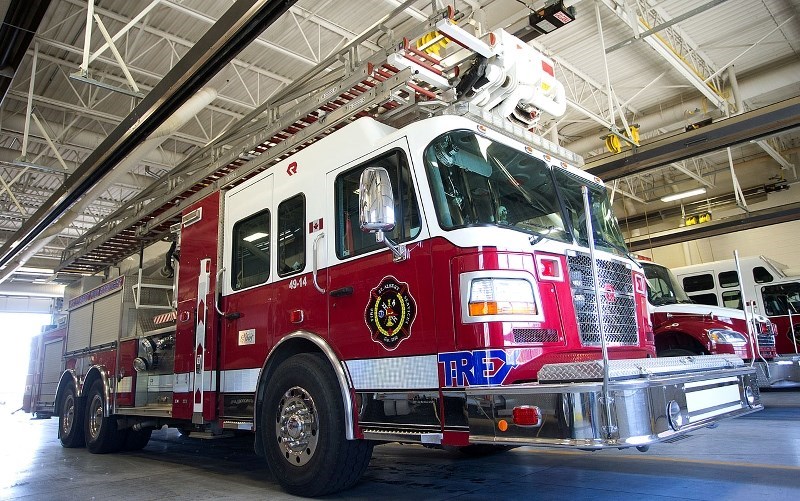Nearly four years have passed since local firefighters and paramedics have had a collective bargaining agreement in place with the City of St. Albert, and the two sides are now heading to arbitration.
The city's fire chief and director of emergency services, Everett Cooke, said after days of negotiations and mediation efforts last summer, the two sides have been unable to reach an agreement. Cooke is a city employee and not a member of the firefighters union.
“We are unable to comment without mutual agreement from IAFF Local 2130 on the matters remaining in dispute,” Cooke said in an email. “The city’s goal is never to go through arbitration – it is the process that exists where the parties, despite their best efforts to understand each other’s interests, are too far apart on substantive issues to reach a negotiated agreement.”
“The relationship between the parties continues to be amicable and productive.”
IAFF Local 2130 president Greg Harvey also said because the arbitration process is underway he wasn't able to say what the union is seeking for its members under the next collective agreement.
“An arbitrator likes to use comparables when they make decisions, so we're just hoping to be in the ballpark of what other services have been getting during these times,” Harvey said.
Given the previous collective agreement expired at the end of 2019, Harvey said St. Albert's firefighters and paramedics have not had a wage increase since before the COVID-19 pandemic, as the rules and schedules agreed to under the previous agreement will remain in place until a new agreement is signed.
The previous agreement included a staggered 4.3 per cent wage increase, with the most recent bump taking effect in the summer of 2019. Currently, first responders deemed first-class emergency services personnel receive an annual salary of about $104,000, while those in seniority and leadership positions (captains, lieutenants) recieve salaries ranging from $116,000-$132,000.
The highest salary for a union position, platoon chief, is about $140,500.
“This is our first time in arbitration in St. Albert, so it's new to both sides, but it is a process that is used quite frequently in the industry to settle contractual disagreements and we're both using it this time to settle our differences,” said Harvey.
Cooke said last September, then-minister of labour and immigration Kaycee Madu directed the city and IAFF Local 2130 to form a Compulsory Arbitration Board (CAB). The CAB comprises a single appointed representative on each side, along with an independent party both representatives agree to, serving as chair and arbitrator.
“Both the city and (the union) confirmed their nominees in 2022 but a chair for the CAB has not yet been confirmed,” Cooke said.
“Once a chair is confirmed, dates for the arbitration hearing would be scheduled which we anticipate would be in late 2024.”
Cooke also said if the two sides aren't able to agree on a chair for the arbitration board, they can ask the jobs, economy, and trade ministry to appoint a chair.
“Presently the (representatives) continue to exchange and review suggested nominees but have not yet agreed on a chair.”
When asked how the union felt about the possibility of an arbitration hearing not being scheduled until late next year, Harvey said IAFF Local 2130 knows they are one of many firefighter and paramedic unions in Alberta that are currently working without a contract.
“Unfortunately, we're one of numerous IAFF Locals in Alberta that are in this situation, it's not exclusive to St. Albert,” he said.
According to the Alberta government's online collective bargaining agreement search tool, firefighters in Medicine Hat, Red Deer, Spruce Grove, Lloydminster, Airdrie, Calgary, Leduc, Lethbridge, Strathcona County, and more, are working without an active collective agreement.
“We know we're not any different than anybody else," Harvey said. "It's in the lawyers' hands right now, and once they get the arbitrator assigned we can get some (hearing) dates and then we'll just work towards that.”
Cooke said despite the city and the union heading to arbitration, there are “open lines of communication if the bargaining landscape changes (or) new information arises that informs our negotiations or is otherwise helpful in reaching a settlement.”
“City administration continues to value our relationship with IAFF and the great work our employees perform,” Cooke said.




